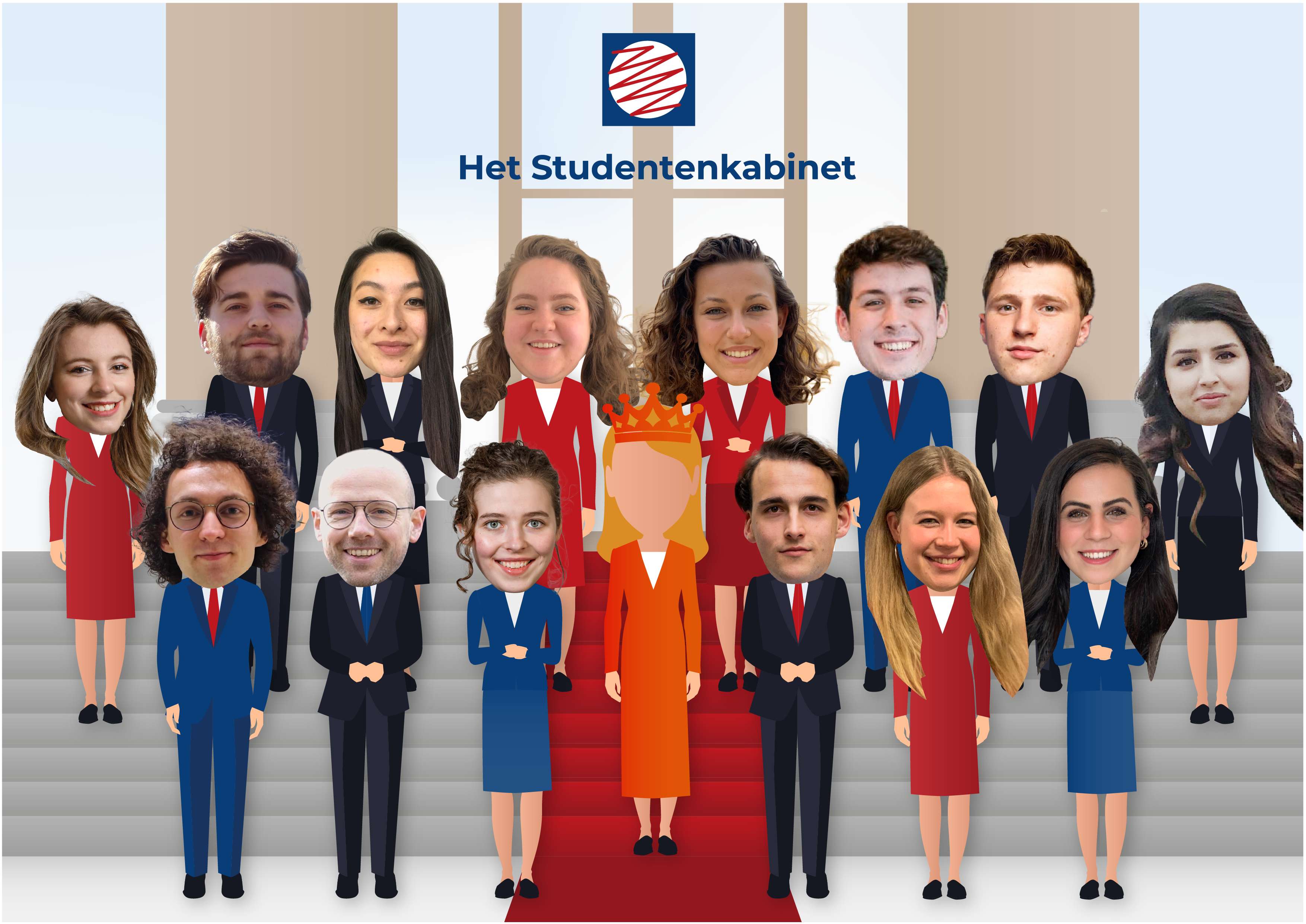Nederlandse universiteiten lanceren eerste Studentenkabinet

Geen regeerakkoord voor vier jaar, maar een plan voor de lange termijn, gebaseerd op de wetenschap. De universiteiten van Nederland presenteren – vlak na de verkiezingen en midden in de formatie – een eigen regeerakkoord. Veertien studenten vormen het eerste Nederlandse Studentenkabinet en vertegenwoordigen elk een eigen ministerspost met een passend plan voor de toekomst van Nederland.
“Lang niet alle vraagstukken zijn binnen vier jaar op te lossen. Hoe ziet ons land, en de wereld, er over 30 jaar uit? Of over 50 jaar? Welke keuzes moeten we nu maken om ervoor te zorgen dat we straks ook nog gezond, tevreden en duurzaam kunnen leven? Het Studentenkabinet gaat daarbij helpen.” Aldus, Timon Metz, masterstudent aan de Universiteit Twente en de eerste Minister-President van het Nederlandse Studentenkabinet.
Plannen gebaseerd op wetenschap
In een beleidsplan presenteren de student-ministers duurzame plannen voor de toekomst. Ze geven hun visie op maatschappelijke thema’s waarbij innovatie, technologie, wetenschap en universiteiten een cruciale rol spelen. Niet gebaseerd op politiek die zich laat leiden door dagelijkse agenda’s of de gunst van kiezers, maar gebaseerd op gedegen onderzoek en wetenschap.
Nieuwe ministersposten
De ministersposten laten zien dat het alternatieve kabinet met een frisse blik naar de toekomst kijkt. Zo introduceren de studenten onder meer een Minister van Data & Privacy, Gezond Leven, Innovatie, de Nieuwe Datawerken, Inclusieve, Duurzame Economie en LOVE (Landbouw, Omgeving, Voedsel en Energie).
Groningse student-minister
Elk universiteit levert een eigen minister aan het Studentenkabinet. De RUG schoof Terence Wagelaar naar voren als Minister van Duurzame Energie. Hij studeert Business and Business Economics aan de Faculteit Economie en Bedrijfskunde. In zijn beleidsplan staat het prikkelen van eindgebruikers en producenten om te verduurzamen centraal: 'Zo kan het doel tegen de laagste kosten bereikt worden.'
